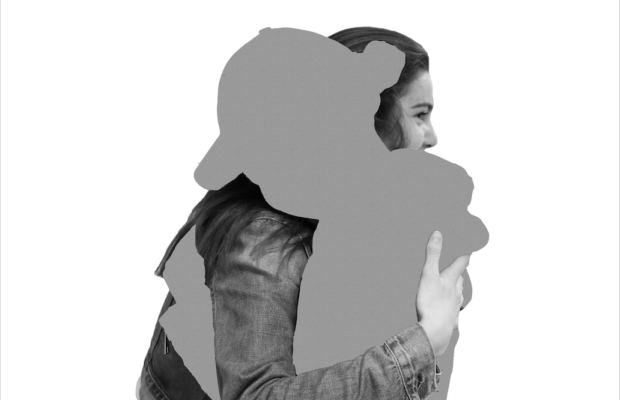Steps to forgiveness often misunderstood

Contrary to what one might think, forgiveness does not mean forgetting a hurtful action or walking back into a hurtful relationship after someone has apologized. In fact, there may not even be an apology.
There are many definitions for the word forgiveness, and the definitions can vary by clinician, researcher and individual. According to forgiveness researchers, Freedman, Enright, & Knutson in 2005, the following definition given by Enright and Fitzgibbons in 2000 is widely accepted: “People, upon rationally determining that they have been unfairly treated, forgive when they willfully abandon resentment and related responses (to which they have a right) and endeavor to respond to the wrongdoer based on the moral principle of beneficence, which may include compassion, unconditional worth, generosity and moral love (to which the wrongdoer, by nature of the hurtful act or acts, has no right.”
Contrary to 31.8 percent of 44 students at the Cedar Falls High School that took a poll questioning their knowledge about forgiveness, an apology is helpful but not necessary to forgive. Not forgiving one’s offender can actually be harmful to the victim according to Professor of Educational Psychology Dr. Suzanne Freedman.
“Saying one can’t move on and heal until they get an apology from the one who hurt them leaves the victim trapped and dependent on the actions of the offender before they can move on and heal. Not all offenders admit to their hurtful behavior and/or apologize. Forgiveness is something you can do all on your own without any response from the wrongdoer,” Freedman said. However, she goes on to state that an apology does make forgiving easier.
Based on survey responses, most people believe an apology is necessary to forgive. For
Devin O’Loughlin, a sophomore and one of the 31.8 percent who believes an apology is necessary, said, “I think for one person to be able to fully forgive someone, the other person needs to at first admit that they did something wrong and be willing to ask for forgiveness,” O’Loughlin said. Freedman would state that this is true for reconciliation or getting back together with a person who hurts another, but not for forgiveness.
Sophomore Jake Jensen also believes an apology is necessary for forgiveness. He said, based on personal experience, “I’ve dealt with one too many snakes.”
According to the definition given by the forgiveness researchers already mentioned, many times the offender does not deserve one’s forgiveness because of his or her hurtful actions. They have done something wrong, and forgiveness from the victim is actually a “gift” the offender is receiving.
Sophomore Megan Smith understands the healing aspect of forgiveness and states that by forgiving the offender, one is actually giving oneself a “gift” by letting go of anger that can weigh one down.
“When you’re angry at someone, it’s always better to forgive them even if they don’t ask for it or don’t deserve it because then you can stop worrying about it or feeling angry about it,” Smith said.
No one should be forced to forgive after experiencing a deep hurt, and it usually takes a certain amount of time for one to come to terms with another’s actions and to go through the 20 steps in Enright and colleagues’ model of forgiveness. According to University of Wisconsin professor R.D. Enright and the Human Development Group in the “Handbook of Moral Behavior and Development” in 1991, “Forgiveness is an active process requiring the injured to journey through the various steps.”
It is common for people to think that when one forgives another, the offender’s deed is forgotten, but according to McGary from the “American Philosophical Quarterly” in1989, forgiveness and forgetting are “incompatible.” It does not make sense to think about forgetting a deep hurt. One does not forget when a best friend lies, but it is possible to forgive the best friend. As time passes, the specific details of the hurtful event may not be recallable, but the pain caused by the offender still exists.
Ninety point six percent of 44 students say that forgiving and forgetting are not interchangeable. Students understand the difference between forgiving and forgetting.
Junior Cole Miller, part of that 90.6 percent, said that by forgetting about the past, you lose a part of yourself. “The past makes you who you are; you can’t forget what has happened, but you can accept it,” Miller said.
To accept the words “I’m sorry” and to forgive doesn’t correlate with excusing or condoning one’s actions. It is often easier to condone because a survivor of deep hurt forgives and acknowledges the pain inflicted, so forgiveness is not equivalent to condoning or excusing according to Enright. It may be easier at times to condone someone’s actions rather than admitting that one has been hurt and dealing with that hurt, but forgiveness and condoning are not synonymous.
Only four individuals out of the 42 individuals who responded to this question on the survey connect condoning and forgiving. Sophomore Sierra Miller believes that if one forgives what someone has done, then one is ignoring their wrongful actions. “In a way, I think it means you ignore what they did,” Miller said.
Sophomore Adel Scherrer understands that by forgiving the offender, one is not validating or excusing their actions, but accepting what they have done and moving on. “This does not mean you forget what they did or make that action OK,” Scherrer said.
“Forgiveness is something you can do on your own,” Freedman said. It does not require the actions of another. Whereas reconciliation requires the participation of both the survivor and offender.
Less than one percent of 42 students who responded to the question “Do you believe forgiveness means you automatically get back in a relationship or the same relationship with someone?” believe that forgiveness means reconciliation.
Forgiveness takes time, and building up to the same relationship one had before one was hurt requires time and space. “When you ask for forgiveness you may receive it, but they won’t trust you in the same way,” sophomore Evan Stolz said.
Junior Tayah Medhaug is another student who doesn’t connect reconciliation with forgiveness. “Just because someone cheats on me and I forgive them doesn’t mean we are getting back together. It just means I’ve moved passed it,” she said.
Although, forgiveness is a complicated and easily misunderstood concept, there are many benefits to forgiving. Forgiveness is also necessary for the repair of relationships, if desired and possible, and enables one to effectively cope with injury and betrayal according to the clinical review by T. A Legaree and others found in the Journal of Martial and Family Therapy. Thus education on what forgiveness is and is not as well as the process of forgiving is indispensable, according to Freedman and others from a report on the process model of forgiveness in the “Handbook of Forgiveness” in 2005.









You must be logged in to post a comment Login